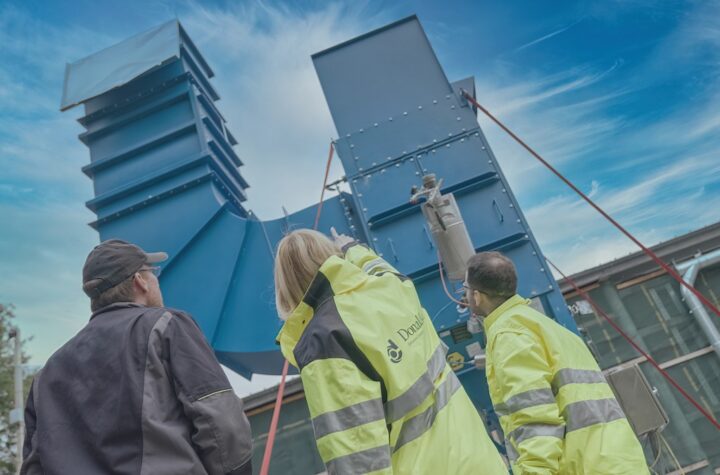MAHLE’s new “second” piston ring uses chrome-silicon steel to replace cast iron traditionally used for the second of three rings found on gasoline-powered spark-ignition engines.
Today’s engines have three piston rings – a top ring, second ring and oil ring. The top and second rings are designed to keep combustion gases in the combustion chamber. MAHLE’s thinner, lighter-weight steel-wire design for the second ring is based on the company’s own NanoNapier Steel (NNS) technology for which a patent is pending.
“Rings made from cast iron are heavier and require a considerable amount of machining,” says Steven Sytsma, a piston-ring product expert at MAHLE. “Cast iron simply is no longer suitable for most current and next-generation engine applications.”
Cast iron for decades has been the material of choice for the second piston ring because of its wear characteristics and compatibility with other engine-design features. The trend to higher revving, lower-friction engines, however, has resulted in the need to reduce ring size and weight as axial piston heights (distance between a piston’s top and bottom) have dropped.
Sytsma notes that over the past 20 years ring height has decreased by 40 percent or more – from 2.0 mm to 1.2 mm or less – causing MAHLE to look for cast-iron replacement materials.
Scott Ferriman, MAHLE’s vice president for North American sales, explains that the company currently supplies top, second and third rings to vehicle OEM’s, engine manufacturers and piston suppliers around the world. Several years ago MAHLE replaced cast iron with steel for its top rings.
“Customer interest in our new NanoNapier Steel ring has been exceptionally strong,” Ferriman reports. “Production of the new ring for a major original equipment customer will begin later this year at a MAHLE facility in St. John’s, Michigan, and we are actively pursuing contracts for more than 20 additional programs with multiple customers as well.”
Ferriman adds that the company currently is quoting on business with annual production volumes of 15 million NNS rings or more.
MAHLE began development of a first-generation second ring with steel in 2010 using a steel-wire design. The company’s engineers relied on proven suppliers to deliver wire that met MAHLE’s demanding product requirements. The new steel rings have fewer material defects and improved quality overall which in turn provides significantly better customer value.
Benefits of MAHLE’s NNS second-ring include the elimination of foundry-related defects, reduced engine-oil consumption and substantial face- and side-wear resistance. In addition, the thinner axial height and radial thickness provided by the new design has the potential to help make pistons even lighter and engines more capable of operating with less vibration and friction at higher rpm’s.
Because a NNS second ring is axially and radially smaller, it also has less mass and is dynamically more efficient at its dual tasks of both sealing off oil from the upper portion of the piston chamber and regulating gas pressure within the piston ring belt. Engineers will be able to take advantage of thinner second rings to further reduce weight as well.
As a leading global development partner for the automotive and engine industry, MAHLE offers unique systems competence in the combustion engine and engine peripherals. With its three business units Engine Systems and Components, Filtration and Engine Peripherals, as well as Thermal Management, the MAHLE Group ranks among the top three automotive systems suppliers worldwide.
All of the group’s nonautomotive activities are combined in the Industry business unit. These encompass products from the application areas of large engines, filtration, and thermal management for industrial purposes. The Aftermarket business unit serves the independent spare parts market with MAHLE products in OE quality.
MAHLE has a local presence in all major world markets. In 2014, some 64,000 employees at over 140 production locations are expected to generate sales of around EUR 10 billion (USD 13.8 billion). At ten major research and development centers in Germany, Great Britain, the USA, Brazil, Japan, China, and India, more than 4,500 development engineers and technicians are working on forward-looking concepts, products, and systems.














































 AK Steel Introduces New Stainless Steel Product
AK Steel Introduces New Stainless Steel Product


